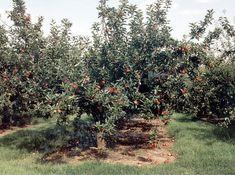

At least one third of the UK top-fruit industry could disappear unless it pays greater attention to its management and marketing.
This was the most damning finding of a report commissioned by the Worshipful Company of Fruiterers. It discovered a three-way split within the industry ñ the top echelon of growers remain profitable, the middle tier could do better and the bottom 30 per cent fall into the endangered category.
Laurence Olins, chairman of the Fruiterers' awards council, said he hoped the report would provide a “roadmap to better business”, adding: “The question we [the Fruiterers] asked was why some growers prosper in different environments while others do not.”
Dessert apple acreage has dropped by 50 per cent in the last decade, the country's combined culinary apple orchard is 30 per cent smaller and pear area has dropped by 27 per cent, The Fruiterers' blueprint aims to analyse specific issues relating to a shrinking top-fruit industry, with a view to improving both volume and profitability.
The author, Violetta Vitanova-Zlatareva of the Sir John Cass Business School, City of London University, interviewed 26 growers in Kent and East Anglia and found that those which were still profitable were often not just professionally managed, but also planned ahead both in the short and long term with co-ordinated marketing, direct supplier relationships and efficient replanting programmes.
One of the most telling discoveries was that some growers' grade outs varied between 50 and 80 per cent, yet there was a general failure to accurately monitor orchard performance.
The report suggests that the bottom tier of underperforming top-fruit companies should either sell their businesses with existing orchards, lease their orchards or consider shared farming. If they do not want to give up, it concluded, they should hire professional management.
The recommendations of the report would not prove costly to implement, said Olins. It merely requires a “change of attitude” that would see the industry “stand up and be counted”.



